Youth Conduct Carnivore Studies at the Learning Center
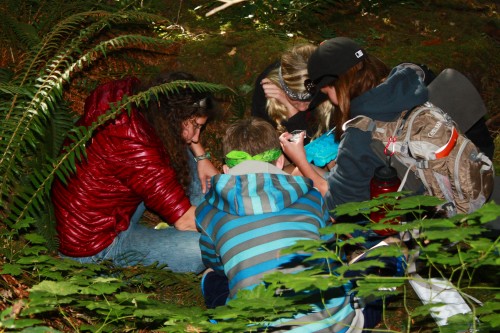
On a sunny fall day, 56 sixth through eighth grade students conducted field studies on carnivore habitat in the area around the North Cascades Environmental Learning Center. What makes this group of students different from all the other middle-schoolers who have done similar studies at Mountain School? These kids attend Evergreen Montessori—in Colorado.
This school recognizes that time spent outside the classroom walls is just as valuable as time spent learning in the classroom. Because of this, all students go on field trips once a month, sometimes venturing to other states or climbing to the tops of Colorado mountains!
The carnivore variation of our long-standing Mountain School program is an inquiry-based curriculum that allows students to come up with their own research question, hypothesis, and study methods. At the end of their time here—we offer both three- and five-day programs—each research group presents their findings at a symposium.
At this point you may be wondering how we are able to pull off real scientific studies with 12 to 14 year olds in such a short period of time. The magic answer is that we get them excited about science.
Most of us conjure up an image of white lab coats and goggles and test tubes and wild hair when we hear the word “scientist.” This can seem boring or unattainable—and it’s not entirely true either. As defined in the dictionary, a scientist is “a person who is studying or has expert knowledge of one or more of the natural or physical sciences.” Our students fit right in, as budding wildlife biologists.
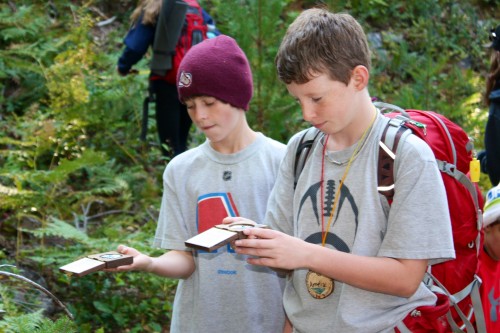 Two students measuring canopy cover with spherical densiometers
Two students measuring canopy cover with spherical densiometers
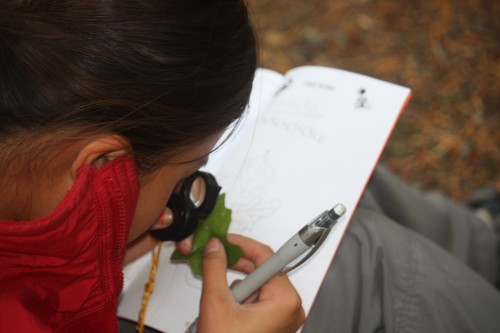 A student using her handlens to look closely at a leaf. Scientists make observations and drawings like this in a field journal.
A student using her handlens to look closely at a leaf. Scientists make observations and drawings like this in a field journal.
We get to explore in the forest, get down on the ground, get our hands dirty. Using real Science Tools and, for the most part, simple math, we get to measure tree height and diameter, canopy cover and ground cover. Armed with field guides and dichotomous keys, we can identify trees and plants. Once we’ve collected our data, we compare it to known habitat requirements for our carnivore.
At the end of this week one of my students said with confidence: “I thought it was fun to be a real scientist for a day.”
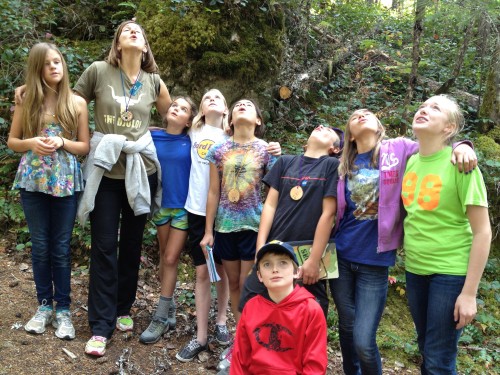 The Grey Wolf research group howling like their namesake
The Grey Wolf research group howling like their namesake
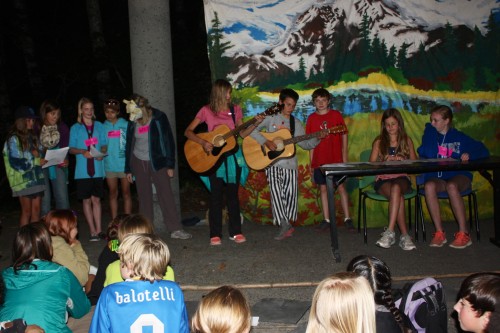 Students presented their research findings at a creative Symposium on their last night of Mountain School
Students presented their research findings at a creative Symposium on their last night of Mountain School
Leading photo: Graduate student Lindsey Walker and her students learn about the forest ecosystem. All photos by Evergreen Montessori teachers.

